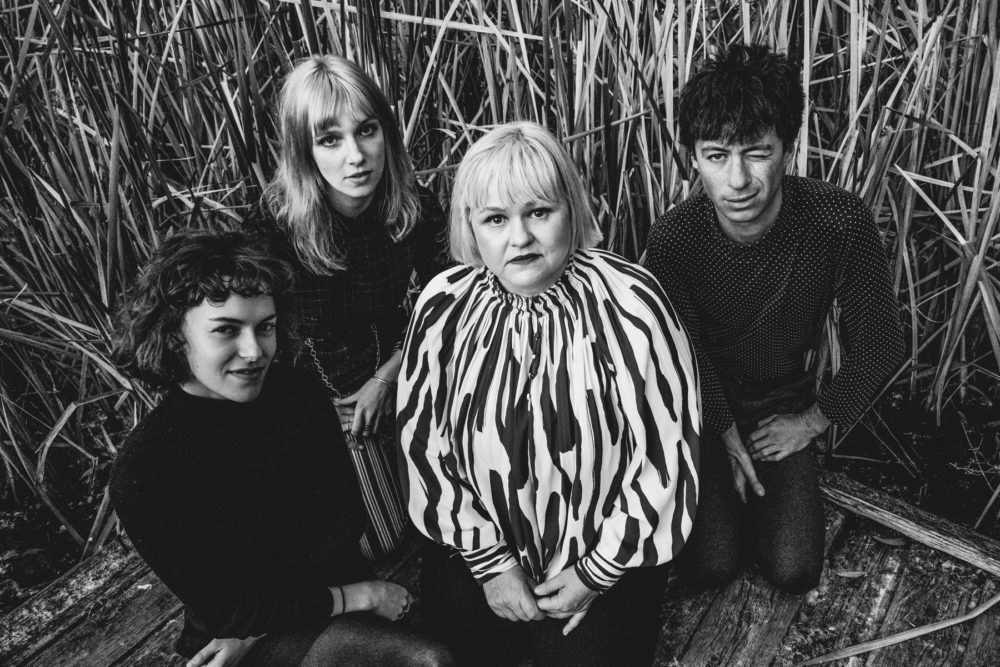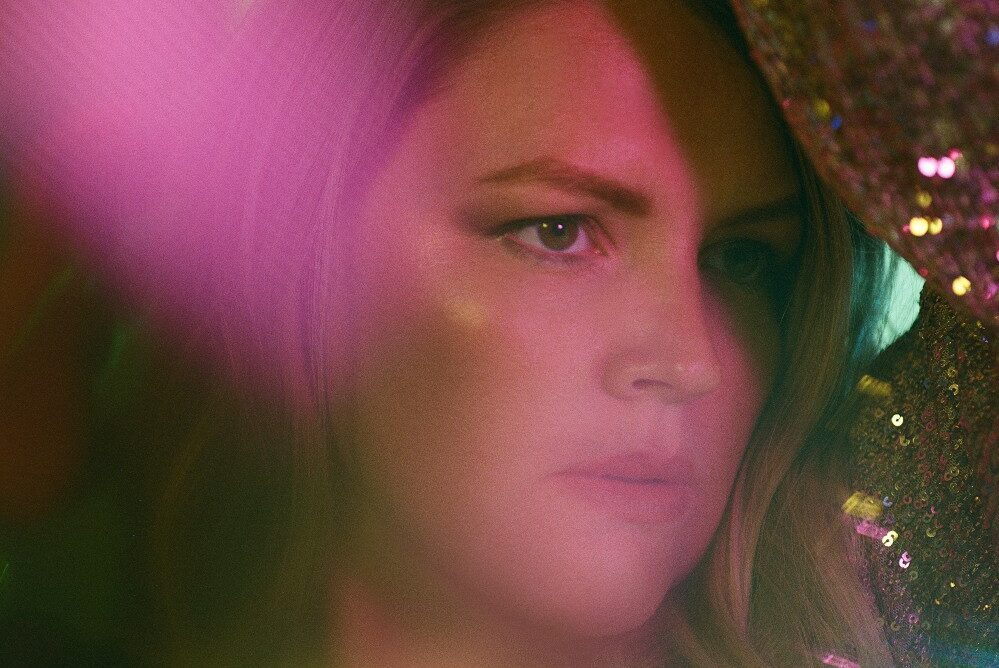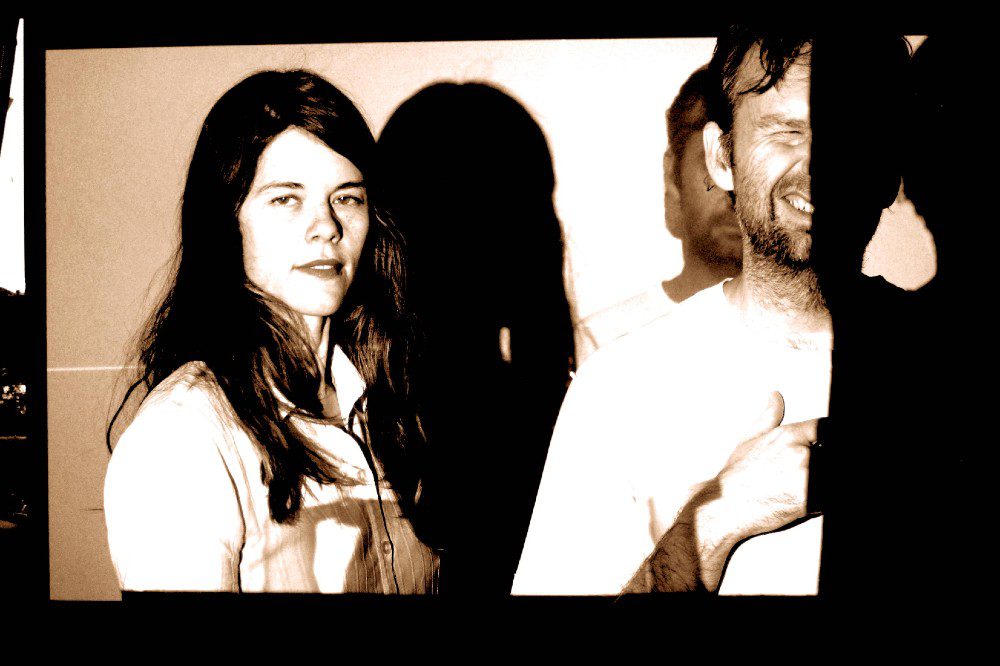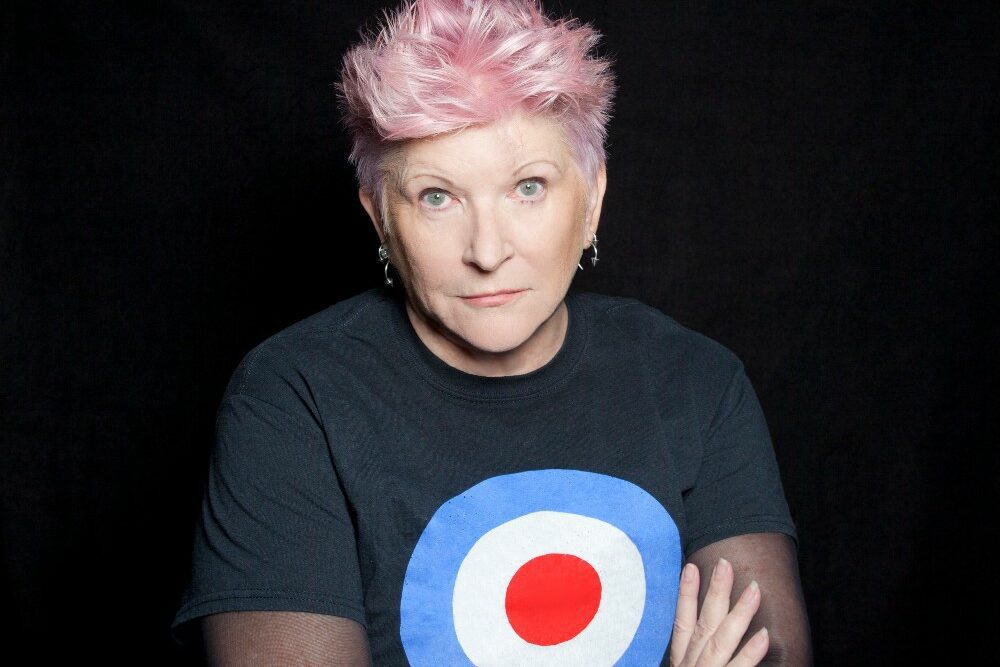
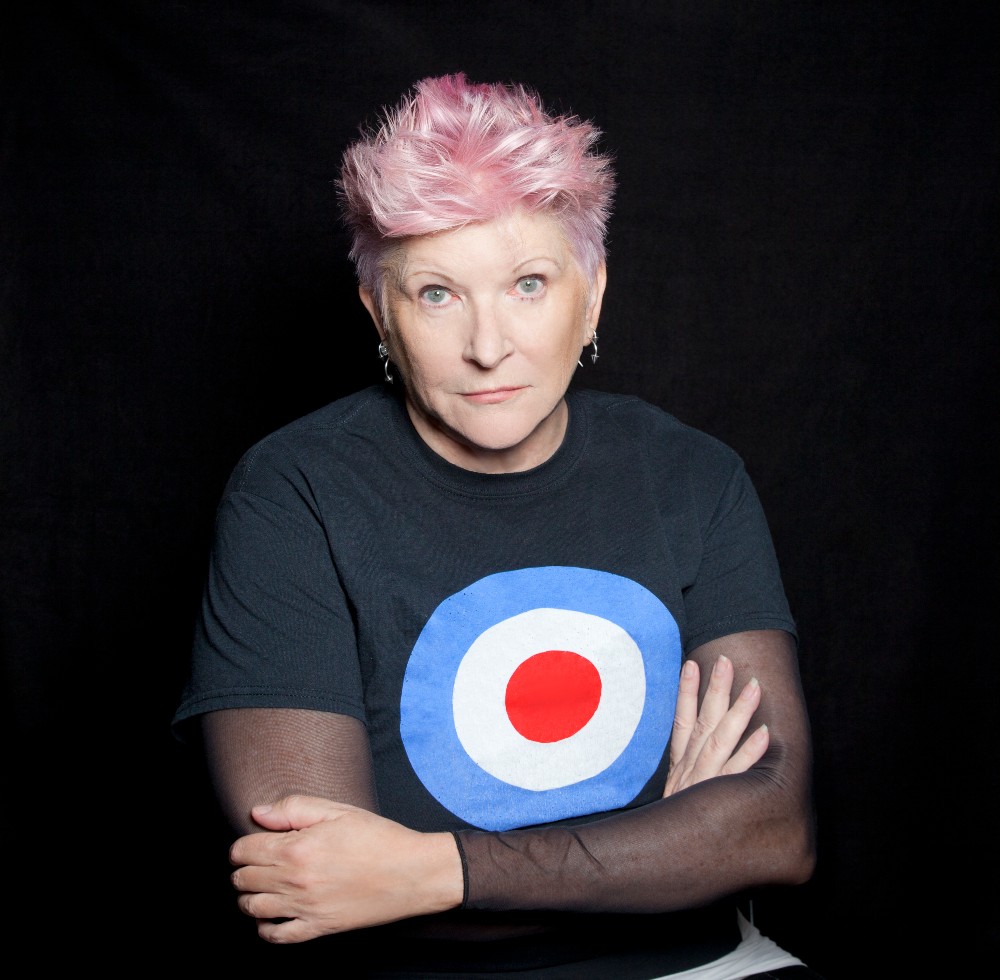
Rock ‘n’ roll’s first female roadie has lived with AC/DC, toured with Suzi Quatro, Leo Sayer and Status Quo, and though she couldn’t have imagined it as a teenager, she’s proven women belong backstage.
Tana Douglas, a teenager whose childhood was troubled by a spiteful mother and an incompetent father, found her escape in live music. It was largely fate and circumstance that lead to her beginnings as a roadie in 1973. Without a home, nor an income, helping the road crew to unpack and load the band’s gear back into trucks post-show was a means of making an income and feeling part of a community. Her dedication, her relentless hard work and “I can do it” attitude meant she was constantly working, her reputation forged through word-of-mouth commendations. By 1974, she was working for – and living with – AC/DC. Their management had set up the band, along with Douglas, in a suburban house in Melbourne’s St Kilda East.
“They were so welcoming and friendly and so close to my age. It was their first time away from home, and that’s what I’d been missing, so I thought it was great,” Douglas tells Audiofemme. “They may as well have been [my] brothers, since we were doing everything together and we all got on really well.”
Douglas and AC/DC would spend a lot of time listening to records. “The brothers, Malcolm and Angus, listened to old blues. Bon was into the new ZZ Top album, Tres Hombres, [and] Alex Harvey Band because all the Scots loved him,” Douglas remembers. “We’d sit and listen to all sorts of things: Jerry Lewis and Elvis Presley. I liked Janis Joplin and though I don’t think any of them liked her, they were polite enough to let me listen. Everyone was equal, there was no separation.”
Douglas has just released her memoir, LOUD, which recalls much of her early life and illuminates the contradiction between touring with glamorous, cult-favourite rockstars while knowing she had no home to go to in the evenings, nor family to call if she was lonely or in trouble. Like many women who forge a path for other women to follow, Douglas had to bear the brunt of criticism from male colleagues, threats and abuse from female fans who saw her as a competitor for attention by the objects of their obsession, and heckling from audiences when she could be seen from the stage.
But it is also the tale of a true music industry pioneer, forging ahead in her field thanks to ingenuity, work ethic, and passion. Douglas transitioned from the backline into working on lighting and sound, despite having no previous experience in either specialty. In those days, it was a matter of learning on the job – not always easy as one of the rare women working in the support crew.
“The technology has evolved immensely to this day, but it was the new technology of the 1970s and nobody really knew anything about it,” she recalls. “It was a starting point, and people like myself kept pushing the envelope. The work schedule back in the ’70s was so heavy – with AC/DC we were doing 12 to 14 shows a week. You learn by setting it up, and when something broke you fixed it. My biggest learning curve was with Paul Dainty’s production company ACT. We were learning first in the country from experts from the US and the UK coming through on tour.”
Early in her career, Douglas realised she’d be more likely to have ongoing, reliable and well-paid work if she was working for production and touring companies, rather than for artists directly. Her employment by TASCO, a London-based production company, enabled her to work with Status Quo, The WHO, Ozzy Osbourne, The Police, Iggy Pop and Elton John. When TASCO opened a Los Angeles office, Douglas transferred to the US and became a resident.
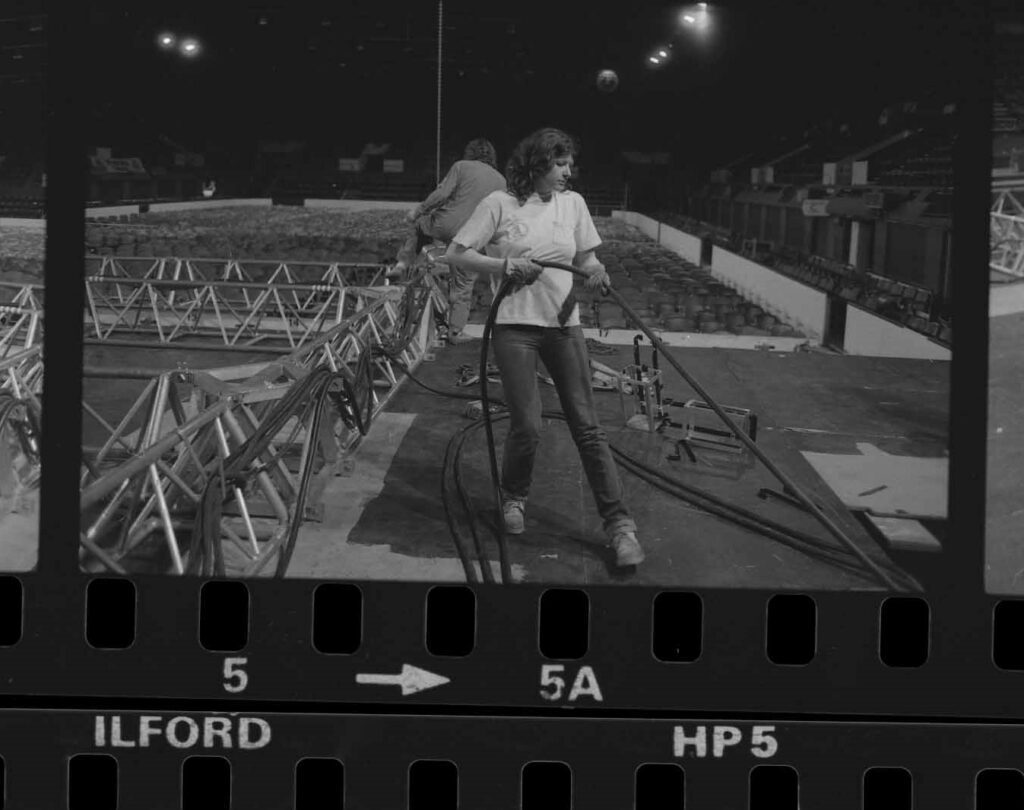
In the coming years, she’d gradually shift out of working on lighting and stage production into logistics for artists as diverse as Lenny Kravitz, Red Hot Chili Peppers, Ice-T and Pearl Jam – stars with star quality. “It’s how they hold themselves before they say anything,” muses Douglas. “You can just see star quality, they just ooze it. Iggy just oozes it. He’s very feline, he prowls, it’s amazing to watch. Other people, like Elton John, it’s the way he carries himself. You know he’s a star. He’s a bit stand-offish until he can figure out what’s going on in the room. Stars have a different nuance to them. George Harrison was so quiet, so low key, but you knew it when he walked into a room.”
As for the grunge era, Douglas says there still that star power under the flannel shirts, albeit less obvious. “With Pearl Jam, there was a more laid-back, of-the-people vibe but they’ve still got it. They’ve got cargo pants on, carrying surfboards, but you can still tell,” she says. “If you’ve got to put it on, then you don’t have it. Star power, you’re either born with it or you’re not.”
Tana Douglas says she would always make an effort to talk to fellow female roadies before and after the show to build a rapport. She’d suggest companies to talk to and people to talk to. “I’d also let them know that they’d have to work as hard, if not harder than the rest of the crew,” she recalls. “You would have to give up the feminine niceties of life, and if you started making demands to stop and wash your hair, it wouldn’t fly. The trade off is if you make sacrifices and you’re good at the job, there’s room for you.”
Even today, Douglas admits, “You pretty much have to justify yourself to someone, somewhere along the line. Young women have a similar struggle now – it’s not as bad or as obvious, but it’s one of the last frontiers of men’s domain. When I had my own company, I was running it and not a lot of people knew how to do that so they’d respect that. There were contracts I wouldn’t get because I was a female, but I had a ton of different clients who knew the job would be done at a good price and they could count on me.”
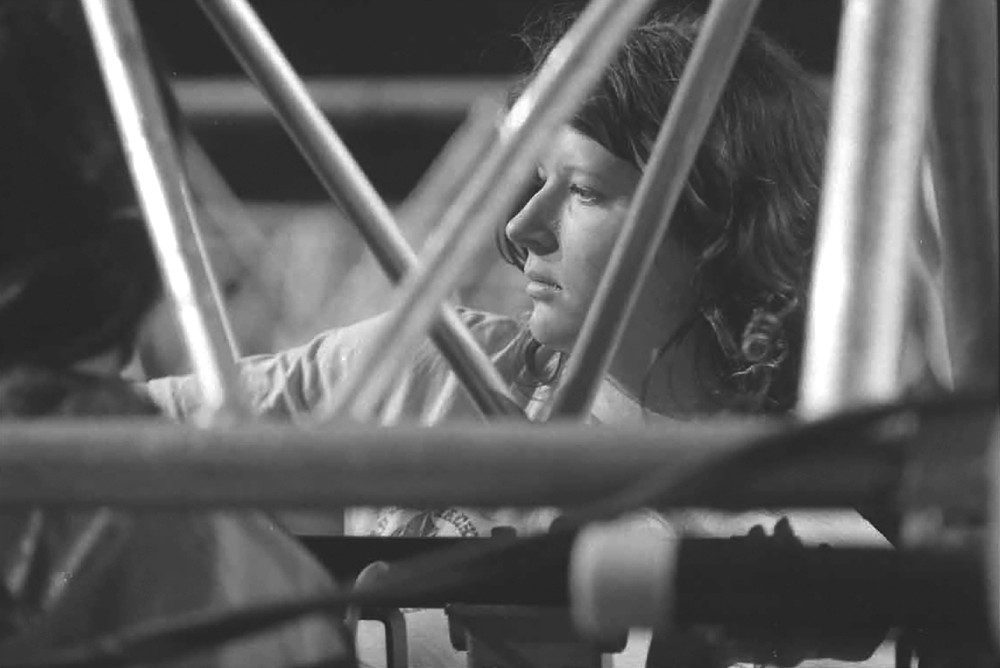
It wasn’t until the late 1980s that women started to become the norm backstage. “It started trickling in in the 1980s and 1990s. Lollapallooza were very pro hiring females,” says Douglas. She’d met festival co-founder Ted Gardner on a Men at Work tour; Gardner and his wife Nikki Brown had established a management company that handled Jane’s Addiction, Tool, and other alt-acts tapped for early Lolla lineups.
“They were so supportive. There were so many bands that it became something where females would turn up, do their job, and it wouldn’t matter who they were. That was a shifting point in the industry, I think,” remembers Douglas. “Nikki managed bands, and [Gardner] knew females worked backstage way back. They were professionals who realised that what they were doing with Lollapallooza was different, so why couldn’t personnel be different?”
Douglas has spent long enough in the industry to know that women have greater capacity for some roles than their male counterparts.
“Females are really detail oriented so we make excellent tour operators. There’s also a lot of females in the video departments. There’s very few female production managers, but the few there are are very good. Females are good at departmentalising, figuring it out, organising and doing the job,” she says. “Men have been holding down these jobs, but women are good and often, we have an eye for things like lighting design. Perhaps it’s more of an emotion thing of the music and the colour; they really excel at it. Things like soldering and repairing equipment, these are things women excel at with finer attention to detail.”
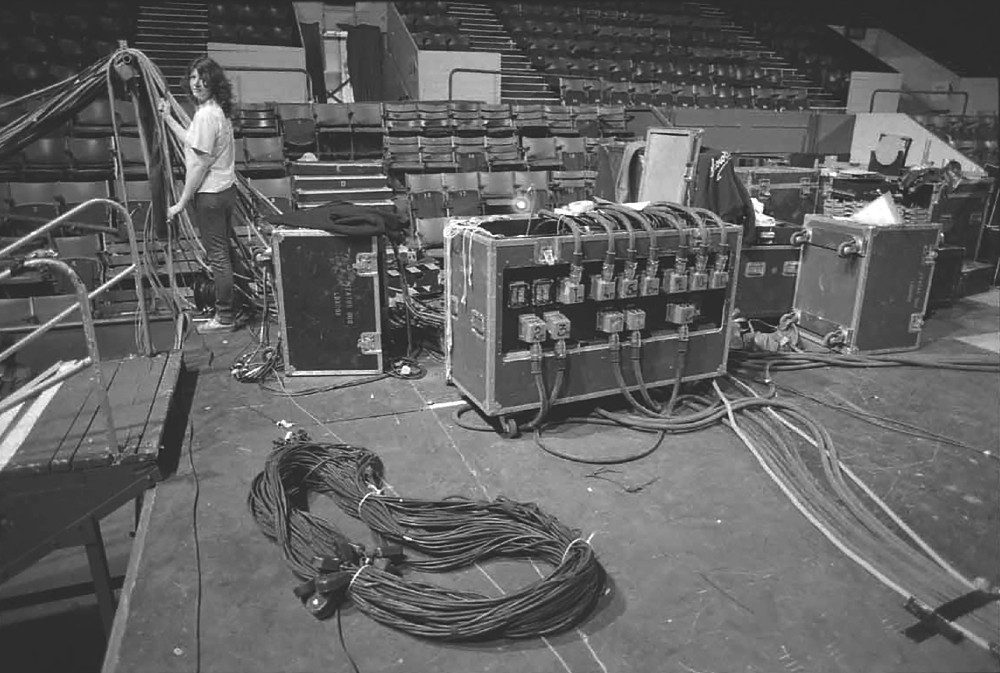
As for writing her memoir, Douglas found it “incredibly therapeutic.”
So much of her life had been spent on tour and between tours that the hardest part was working out how to write her memories in a way that made sense. She was able to go back to old itineraries and call old friends to confirm dates, events and stories. “I think we got it mostly correct, so fingers crossed!” Douglas laughs.
There was one figure who is especially responsible for Douglas’ wild career and someone who is at the forefront of her memoir. “Wane ‘Swampy’ Jarvis made room for me – he would listen and offer advice. He was a brother figure to me, and we remained friends for his entire life,” Douglas says. “That was a bond that couldn’t be broken and that’s miraculous. We met when I was 16 and 50 years later, there was always that bond there.”
In LOUD, Tana Douglas raves about the men who were supportive, who didn’t question her right to be there, and what really becomes clear is that for women to excel in male-dominated domains – like backstage – it requires both men and women to provide space and opportunities.
Follow Tana Douglas on Instagram for ongoing updates.

